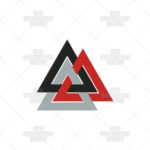It isn’t something we can buy on Amazon. There are no how-to manuals or instructive google searches. It won’t garner Twitter followers or Facebook likes. It isn’t religious or political.
“The Code, ” is unique to each person, but in general terms is the way we choose to move through the day, react and solve problems, and what we should expect of ourselves when life gets hard.
The Code is more significant than most everything else, especially those distractions that invade our well-being, stealing focus from what is important and turning us into captives of phone apps, futile trends and laziness, as well as disciples of those who thrive on division, hatred and short attention spans.
Attainment we seek though The Code must mean more than defensive resistance from co-workers, or the indignant and dismissive attitudes of an ineffective boss. It must take precedence over the judgmental way we react to those who seem unworthy, those we find toxic and unwilling to see beyond narcissistic little worlds. Those who either refuse or can’t be bothered to think beyond themselves.
Visualize The Code as an internal blueprint, distinctive only to yourself, one that can help steer through the heartbreak, euphoria, pettiness, love, and general struggles which are life – on a normal day. Most feelings, positive or negative, are at best ephemeral. The Code is about how we respond – who we thank, why we blame, and most importantly, how effectively we move through ever-changing and baffling emotional quadrants.
Stripped down to basics, “The Code,” is simply work. Nothing of any human or emotional value has ever been realized without work. History proves this. Creativity, intellect and talent all play a role, but NOTHING resulting in positive or tangible accomplishment comes without effort.
The great Stoics, who admittedly could be rigid and unyielding, believed the honest nature of fulfillment and inspiration comes only from work and introspection, as opposed to accolades, fortunes, or the enhancement of reputations.
The true beauty of our souls can only be discovered and beheld through contemplation, striving and diligence.
All of this this may be why we have found hard training to be an almost perfect mind/body stimulus, as well as a humbling equalizer. For a boxer truly committed to his craft, it is impossible to stay unscathed. Fighters must be ready, and even EXPECT to be knocked down. The Code is in the training. The best usually win, but not without taking some punishment. Not even Floyd Mayweather avoids suffering, be it in the ring or in pre-fight preparation.
Despite the cliches, the fittest cyclist will never TAME any road or mountain. (How do you conquer an inanimate entity?) Through grinding work Cyclists become efficient, the best elite, but never out-pedal the suffering. Real athletes welcome such strain. Training becomes a huge part of who they are, and of their Code.
As for those who cheat, dope, ask the absolute minimum, or otherwise try and get over WITHOUT doing the real work? They only prove themselves unhealthy, unstable, and emotionally stunted. Their identity, if anything, becomes a weak version of character, which is no Code at all.
At the same time, the worthiness we seek in ourselves extends well beyond the framework of fitness and sports, and is nourished through never-ending commitment. If your Code is honest, strong, and dare we say, moral, then the perceptions of others, along with self-destructive stereotypes, won’t matter.
It should be enough to move through the realities of each day with healthy intentions.
Yet to believe such adherence can lead to total serenity is also self-defeating, as is deluding ourselves with hopes of panaceas, no-strings bliss, or an all-encompassing comfort zone. This system of misguided thinking says more about those who preach such an existence as opposed to those who cynically wait for the life’s next hurdle. Better perhaps to do the required work, and therby recognize and appreciate healthier moments, fleeting as they can be.
The world takes prisoners and moves at its own clip, frequently unjust and often mean. It can also be invigorating and life-affirming, even within those darkest of days. Validating our Code can help us navigate black holes and horrible turns, moving us through the sorrow and pain.
Though emotions can’t and shouldn’t be dismissed or devalued simply because they make us and others uncomfortable. For most, anger and rage are all-too accessible, hardwired from a young age. Even the serene Taoist Monk struggles at times with anger. In those moments, the Code can be salvation.
Screaming at someone in the next car, who can’t hear you? Allowing yourself to get worked up over perceived as well as actual slights from those aforementioned co-workers and authority figures? Fantasizing silly dreams of taking a few of them outside and tuning them up, all because you’ve told yourself that they didn’t come of age as tortured or as tough as you had to be?
Or even trying to convince yourself that these less-thans have… NO REAL CODE?
Guess what? They probably don’t. And what difference does it make? We can only control how we react and allow ourselves to feel about such people and situations.
Anger is real, and will always be there, too accessible at times we would be better off avoiding it. The question is what we do with it? Far too often we grant it permission to take control, leading to bitterness, rising blood pressure and migraines. We’ve all been there, self-validation held hostage by perceptions of those who frankly, shouldn’t matter. These same people we judge because they aren’t on our level, simultaneously punishing ourselves with lofty ideals that we should be better. Toxic thinking that only leads to more misery.
But on good days, when we can justify our Code, reason takes over, begging us to slow down and actually breathe.
What we too often forget is The Code doesn’t judge, or expect us to be some mythic figure who can easily rise above daily struggles with self-infliction and alienation. It doesn’t require exacting precision.
Instead, it is more lighthouse, or street sign, reminding us that we aren’t always lost. Simply showing up and paying attention while focusing on one task at a time is a good start.
The Code can be our strength – the best of us.
If we let it.


